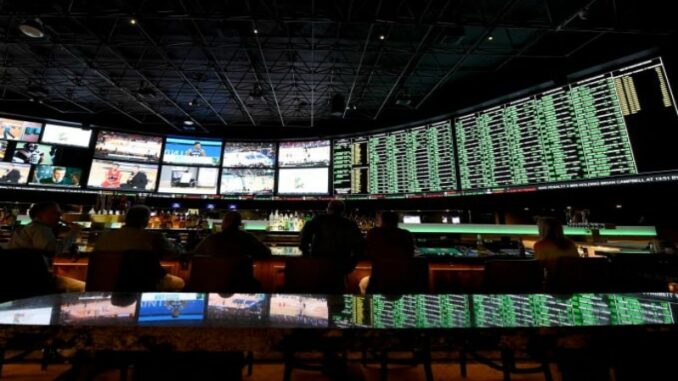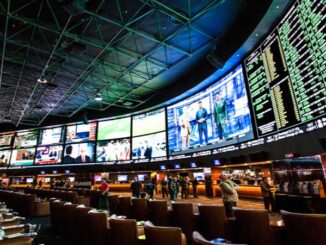
Washington State recently allowed sports betting to take place at tribal casinos. This is a complex issue that deserves rapt attention and a review of offshore financial accounts hiding assets from both immediate friends and family as well as the federal government, given the former’s wont to access piles of bullion to spend lavishly on things that are deserved of owning, and the latter’s desire to maintain roads and bridges and political relevance.
Thus, the necessity of the international offshore accounting industry is to protect interests in Timbersleds (a cross between a dirt bike and snowmobile), Boston Whalers, secret lakeside cabins, or “work” trips to Viceroy Riviera Maya in Playa del Carmen, Mexico.
Back in March of 2020 – unbelievably amid all the chaos – Washington Governor Jay Inslee signed a bill legalizing sports betting into law over several snifters of Remy Martin Louis XIII while chomping on a contrabanded Ramon Allones Superiores LCDH cigar, which brings to mind the somewhat confusing situation of our still-intact trade embargo with Cuba – established by John F. Kennedy in February of 1962 – that, to this day, creates legally confusing situations like the fact that US citizens can legally consume Ramon Allones Superiores LCDH cigars ala Inslee. However, it’s still illegal to buy or sell them.
This, as it turns out, is precisely the confusing issue with sports betting in Washington State. Or really anywhere in the United States, given that Washington is only the 21st state to legalize gambling on the outcomes of any sport, with a heavy emphasis on undercelebrated sports like shuffleboard, Rummikub,
snooker, disk golf, rock climbing, and any women’s professional competitions.
But the overall acceptance of sports betting to include the big ones like football, basketball, golf, and professional cross-country running makes sense given that for the better part of the last 120 years, tens of millions of patriots across our fertile plains have been just barely, barely restraining themselves from placing wagers on college or professional sports outcomes, boxing matches, dog and horse racing, or heated games of “Conkers,” where one 1900’s, coal soot-covered kid ties a dark brown horse chestnut to a string, and his giant red-and-white-spiraled lollipop holding pal in a little Angus Young English schoolboy outfit does the same. They take turns trying to break the other’s chestnut with it by swinging them.
Oh Christ, can you imagine? That was the option. Or possibly working in one of Andrew Carnegie’s steel factories. Thank God for TV.
Somehow Inslee and 20 other pro-bedlam-minded Governors possessed the wisdom to understand not only that U.S. citizenry deserved gambling as a reliable source of passive income, but that demand was so intense it was likely to lead to a host of illegal activities if not quelled – including office wagering, poker nights, dark, smokey parlor room roulette games, and even the possibility of widespread fantasy football leagues conducting “split the pot” styled schemes, all of which could be made legal by the strokes of a few egos and pens; and therefore acceptable to prudish and highly judgmental in-laws of all types; which we decidedly lack, which we are thankful for.
Thus, the birth of Washington’s sportsbook industry. We decided to see for ourselves what precisely a “sportsbook” is, primarily out of a morbid fear it was an actual ledger or Excel sheet of some kind where one sits there and fills out columns and is thus instantaneously bored out of one’s mind. But it turns out it’s an actual place, typically a dimly lit room with comfortable, tiered, movie theater-styled seating, heat, dim lighting, lousy carpet universally patterned in navy blue, teal, and red geometric shapes, and a troupe of slightly worn, desperate-seeming servers ferrying what looked like every alcoholic drink imaginable to sports enthusiasts/data analysts who were undoubtedly in heaven given the two things to look at besides the white bloused, black bolo tie-wearing servers (God forbid they’re forced to wear an NFL referee’s get-up) are digital odds boards and live-streams of various events.
Oh, you can smoke at a sportsbook too. There are non-smoking areas that remain largely vacant, or at least only populated by minors cutting class, many of whom must have fake IDs given it looked like they were drinking lychee martinis during our visit and who drank a lychee martini other than high-school sophomores? We assume smokers have to smoke through a little hole fashioned into the mask unless they’re savvy and wealthy enough to purchase Marlboro’s brand new “Down with COVID/Keep the High DEEPnHALE,” flame-retardant red and white gas mask thing, the design of which is based off the ever-popular college undergraduate soon-to-drop-out-and-work-for-Google-anyway “grass mask.” Which, if unfamiliar, is worthy of research.
As previously indicated, Washington’s sportsbooks are the exclusive domain of tribal casinos. This has caused significant conflict within the realm of local rabid NFL fans, armchair quarterbacks, bandwagon jumpers-on, screen addicts, and stockbrokers (a.k.a. white-collar gamblers); all of whom think it would just be simply awesome on any given Sunday morning to pop on over (under the auspices of going to Home Depot) to their favorite neighborhood watering hole featuring a brand new sparkling sports-betting sanctuary what with all the screens and digital displays and hubbub – or even just a ten-by-ten, steamy room with a threadbare armchair, twelve-year-old 36-inch flatscreen TV powered by an HD antenna and a half-empty bottle of scotch on the end table.
Alas, it is not to be, for Washington state lawmakers chose a more limited approach than other states that have legalized sports betting, including disallowing Internet or mobile betting options, unlike neighboring and super cool and always-gets-a-ton-of-likes-and-heart-emojis Oregon, where the state lottery earns profits through a smartphone sports betting app as well as tax revenue generated from any Oregonian’s sexy Tinder date as long as things didn’t get too clingy and weird.
And there are even more constrictions that will surely inspire steering wheel hang-wringing coupled with screams of “Noooooo” as drivers try and read this article in traffic which is a bad idea: Washington agreed to leave in-state collegiate sports betting off the table – as in, no gambling on the outcomes of Washington state public or private colleges and universities. Which begs the question of, “What’s the difference between a college and a university?” which, if you answered, particularly out loud to yourself just now, indicates you may be a dork.
So pay heed; wagering on games involving local teams such as the UW Huskies and WSU Cougars is prohibited, just like drinking at the park, so please stop. Stop!
There, see? Taken care of, no gambling involving those schools will take place, ever. Nor has it. Ever. Same with the park situation.
It’s for the well-being of the unpaid student athletes – particularly the Husky football players who generate $92 million in annual revenue and $43 million in profit for the athletics program (football revenues fund 85 percent of a department budget that sustains the 17 other varsity sports and facilities) – while the overall Husky athletics program generates $12.5 million in state and county tax revenue. We want them to focus on school and team spirit, not the accidental byproduct of tons of dough.
Besides, these student athletes are high on the hog what with the recent, generous, Name, Image, and Likeness (NIL) grant by the NCAA; which means, if deemed attractive enough by advertisers, any collegiate athlete can profit off their own personas, especially if they make them super brash, loud, and conflict-oriented because the public just loves that stuff (again, as long as the athletes are hot) and will buy toothpaste tube after toothpaste tube (or whatever product needs constant manipulation to appear unique and desirable) as a result.
Oh, Washington sportsbooks also don’t allow betting on minor league games, but who cares about the struggles of the minor leaguers with their passion and commitment and hope, you know? Boring.
And non-tribal card rooms – a.k.a “mini-casinos” on Aurora Avenue with hookers in the back parking lot – were left by the wayside and are subsequently pressing lawmakers for broader legalization that would allow sportsbooks off reservations, including privately-run neighborhood card rooms (those exist?) and at horse tracks.
We seriously need to locate these privately-run neighborhood card rooms.
The new rules provide betting on a wide range of sporting events, including other college sports, professional sports, overseas leagues, and Olympic and World Cup Competitions. It also allows betting on increasingly popular video game tournaments, commonly called “esports,” or…
“Dork Fest”
“The World’s Largest Assembly of Virgins in One Convention Center”
“Shut Up Nerd”
“I’m Sorry, Please Don’t Hack My Credit Score.”
But now we’ve wandered slightly off-topic. The whole point here is that you can now legally gamble on certain (if not most) sporting events here in Washington, but it’s limited to within tribal casinos. This is fine because while the state’s 29 federally recognized tribes argued that Washingtonians prefer to limit an expansion of gambling and so, therefore, the tribes should be the exclusive, trusted partner (without mentioning their long track record of donating to the campaigns of the Democratic majority in Olympia), they faced massive pushback and lobbying by entities with a stake in the outcome.
In other words, tribes get the gambling because white European settlers took their land, and until there’s a better way to make amends, this sounds like the right thing to do.
So pull some cash out of your offshore accounts and hit the casino—no need to drink and gamble in the local park anymore. We hear betting on the over/under on tonight’s Seahawks and Rams game is the way to go.


